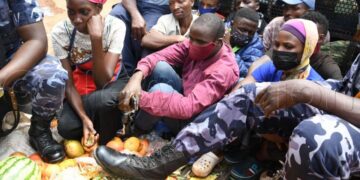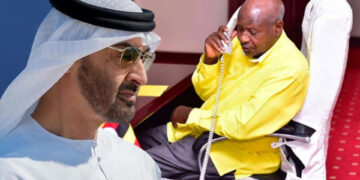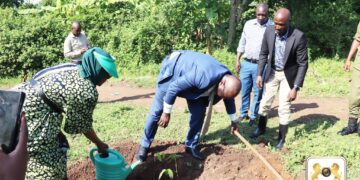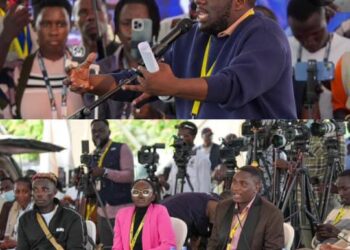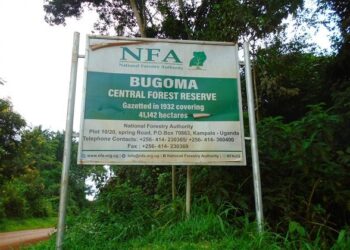OPINION
In the heart of Uganda’s political landscape, a dangerous trend is taking root one that threatens not just the integrity of our parties but the very soul of our democracy. Imagine a system where votes are not earned through vision and service but bought like commodities in a marketplace. This is the grim reality of the commercialization of politics, where money flows like water to sway delegates and voters, leaving behind a trail of frustration, corruption,
and shattered trust. As an elite from Kabira Sub County in Mitooma District, I’ve witnessed firsthand how this rot is infiltrating our communities, turning elections into auctions rather than exercises in patriotism. If we don’t act now, this culture will not only spoil the future of our parties but also instill deep financial and behavioral indiscipline among leaders and electorates alike. Read on, fellow Ugandans, and let’s confront this menace together, your
voice could be the spark that ignites real change.
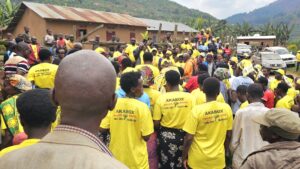
The commercialization of politics, particularly evident in party primaries like those of the National Resistance Movement (NRM), manifests as vote buying, delegate hiding in hotels, and lavish cash handouts to secure loyalty. Capable and visionary candidates are sidelined simply because they lack the deep pockets to compete in this financial arms race. Recent NRM primaries have seen candidates spending staggering sums up to UGX 2 billion in
some western Uganda contests, just to buy votes, often borrowing at exorbitant rates and staking personal assets like land titles. This isn’t leadership; it’s a high-stakes gamble that breeds financial indiscipline. Winners emerge burdened by debt, turning to corrupt practices
post-election to recoup losses, while losers face ruin. Studies show that the average cost for a candidate in Uganda’s 2016 primaries and general elections reached UGX 465 million, a figure that has only escalated, excluding many from participation and perpetuating a cycle of
elite capture.
Behaviorally, this system erodes the spirit of patriotism we once cherished. Delegates and voters, lured by quick cash, abandon principles for payoffs, fostering a mindset where loyalty is transactional rather than ideological. In the 2021 presidential elections, monetization was rampant, with politicians providing money and goods to sway voters, leading to reduced accountability and poor governance. Electorates, conditioned to expect handouts, no longer demand manifestos or service delivery; instead, they sell their votes, knowing representatives often fail to deliver. This behavioral shift creates a vicious cycle: leaders prioritize self-preservation over public good, while voters grow cynical, losing faith in
electoral processes. As one observer noted, politics has become “the highest bidder takes it all,” stripping away any semblance of merit or integrity.
The impact on parties is equally devastating. The NRM, once a beacon of liberation, risks a serious crisis as this culture champions corruption over competence. Allegations of brokers milking candidates for millions in exchange for favorable tribunal rulings highlight how institutionalized graft is undermining party structures. Financial indiscipline manifests in inflated registers, ballot stuffing, and violence, as seen in recent primaries where children
lined up to vote and results were swapped. Behaviorally, it fosters division, loyal members feel discarded, and the party devolves into a “machine of survival” rather than ideas. Broader
research confirms that vote buying reduces voter turnout in the long term and weakens democratic accountability, as politicians focus on recouping investments through patronage rather than policy.
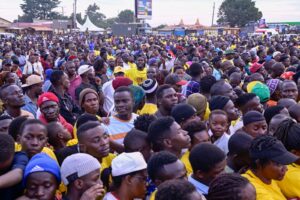 For electorates, the consequences are profound. In communities like mine in Mitooma, voters are exposed to manipulation, with secrecy of the ballot compromised in lining-up methods that invite bribery and intimidation. This leads to poor representation, as elected officials prioritize donors over constituents, exacerbating poverty and inequality. Financially, it drains national resources, elections cost billions, yet deliver little development. While
For electorates, the consequences are profound. In communities like mine in Mitooma, voters are exposed to manipulation, with secrecy of the ballot compromised in lining-up methods that invite bribery and intimidation. This leads to poor representation, as elected officials prioritize donors over constituents, exacerbating poverty and inequality. Financially, it drains national resources, elections cost billions, yet deliver little development. While
behaviorally, it normalizes corruption, teaching generations that success comes from shortcuts, not hard work
Ugandans, this is our wake-up call. We must demand electoral reforms: stricter campaign finance laws, secret ballots in primaries, and anti-corruption measures to restore trust. Let’s support leaders who could end this rot, and reject the money-monier elite owning our parties.
Share this article, discuss it in your villages, and vote with conscience in 2026. Together, we can reclaim a politics of patriotism over profit.
By Jackson Nuwamanya ,
The writer is the NRM Charman Kabira Sub County, Ruhinda South Constituency, Mitooma District















